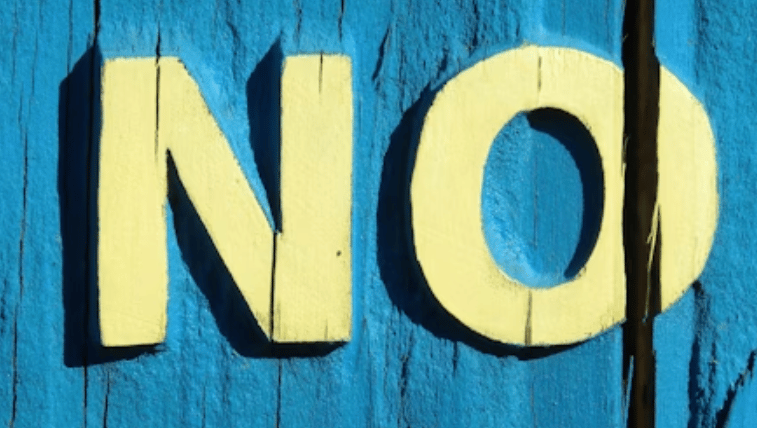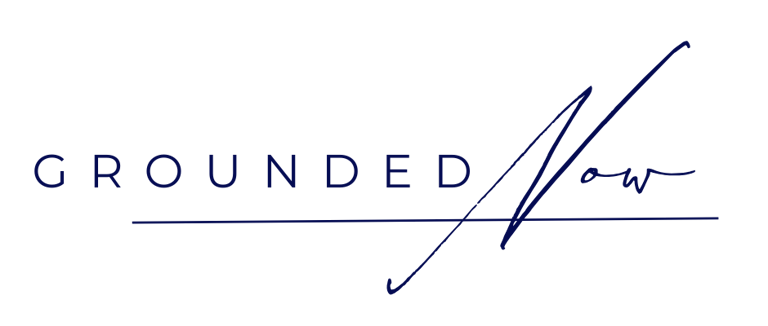Unlocking "The Power of No"
My favorite boundaries book, by James and Claudia Altucher.
HEALTH AND WELLBEINGBOUNDARIES
4/29/20244 min read


In a world where saying "yes" seems like the path to success and happiness, James and Claudia Altucher challenge this notion in their insightful book, "The Power of No." Through personal anecdotes, psychological insights, and practical advice, they illuminate the transformative potential of embracing the word "no" in our lives.
At its core, "The Power of No" is about reclaiming control over our lives by setting boundaries and making choices that align with our values and priorities. By saying "no" to the demands, expectations, and distractions that don't serve us, we create space for what truly matters. This act of self-care fosters a sense of internal groundedness, allowing us to focus on what brings us genuine joy and fulfillment.
The impact of integrating "no" into our lives extends far beyond mere time management. It leads to a profound shift in perspective, enabling us to cultivate a deeper sense of gratitude and appreciation for the present moment. As we become more discerning about how we invest our time and energy, we begin to savor life's simple pleasures and cherish meaningful connections.
Furthermore, embracing "no" is a catalyst for spiritual expansion. It invites us to confront our fears, insecurities, and limiting beliefs, empowering us to step into our authentic selves. Through this process of self-discovery and self-empowerment, we unlock new levels of creativity, resilience, and inner peace.
Ultimately, "The Power of No" is a reminder that true freedom and joy come from living in alignment with our truth. By embracing the power of "no," we liberate ourselves from the pressures of external expectations and unlock the full potential of our lives. So, dare to say "no" with confidence, and watch as your life becomes a testament to the transformative power of authenticity and self-love.
This post was written by ChatGPT, an AI language model by OpenAI, from a detailed prompt written by me.
Notes from me:
I wanted to expand upon this summary because this book has profoundly impacted me.
Going back to the fall of 2020, I vividly remember being on a walk and listening to Dr. Nicole LePera (The Holistic Psychologist) on YouTube.
At the time, I was struggling with everything 2020 brought, plus uncomfortable obligations in both my professional and personal life.
Professionally, work felt incredibly hectic, and I was at peak burnout. My employer started to expect us to stay after hours periodically. Often, the reason was “team building”.
I had a 1-year-old at the time, was exhausted, and genuinely concerned about the virus. Also, I truly dislike “team building” activities under the best of circumstances, as my experiences with them felt inauthentic and draining.
Personally, I had friendships that were not fulfilling. I remember feeling obligated to say yes to invitations.
Back to the Dr. Nicole Lepera video - I distinctly remember hearing the word “boundaries” and stopping in my tracks (literally). I paused the video, read the information on the screen, and had an “aha” moment.
Boundaries are a thing, and I can have them.
This probably sounds silly in 2024 because as a collective we’ve made so much progress in this regard (I love that!).
However, it truly felt revolutionary at the time.
She proceeded to describe different types of boundaries and then said a few things that also made me stop, rewind, and listen again.
“You are not responsible for the feelings or reactions of others,"
and...
"Adults are capable of being disappointed".
Again, this basic understanding has become so much more mainstream, but at the time, it was new to me.
What followed was several months of practicing boundary setting and sorting through the guilt and discomfort of the process.
I created pre-written texts that said things like, “Thank you for inviting me! I’m in a place where I don’t want to add anything right now. I appreciate you reaching out!”
I took time to sit with discomfort and contemplate it, accept it, and attempt to release it.
Over time, boundary setting became much easier.
However, I still said “yes” to things in which I truly did not want to participate.
James and Claudia Altucher's “The Power of No” was a quantum leap.
This book helped me clearly see what was and was not in alignment. It completely normalized saying no to everything that was not.
"The Power of No" gave me the confidence to say “no” without over-explaining, and alleviated much of the negative emotions that accompanied the process up until that point.
I distinctly remember Claudia Altucher describing how the power of “no” had become a spiritual experience for her.
The more clearly and confidently she could assert a “no”, the more clearly and authentically she could affirm a “yes”.
This created momentum, self-confidence, and an expansive, abundant feeling.
The state she described is the state I have sought on this inner journey. Feeling safe in my body, confident in myself, and grounded in the knowledge that other people’s thoughts and behaviors are a reflection of themselves, not of me.
Feeling creative, motivated, connected, and calm. Feeling optimistic, relaxed, and full of life-force energy.
To tie in another concept from one of my blogs, it drastically helped me shift out of an egoic state and into my higher self.
“The Power of No” is a quick read, and if you’re struggling with boundary setting, I highly recommend it.
For helpful scripts and troubleshooting, check out Melissa Urban’s “The Book of Boundaries: Set the Limits That Will Set You Free".
I hope that as you go through your week, you can tune into that initial gut feeling when a request is asked of you.
Do you feel a pull, an expansion? Or do you experience a cringe, a contraction?
This inner guidance is key. It’s all within you. You might be surprised how much more alive you feel by normalizing this simple, 2-letter word.
Thank you for being here!
email: jen@grounded-now.com
Disclaimer: The information provided on this blog is for educational and informational purposes only. It is not intended to be a substitute for professional medical advice, diagnosis, or treatment. Always seek the advice of your physician or other qualified health provider with any questions you may have regarding a medical condition. Never disregard professional medical advice or delay in seeking it because of something you have read on this blog. Reliance on any information provided by this blog is solely at your own risk.
Copyright @2024
